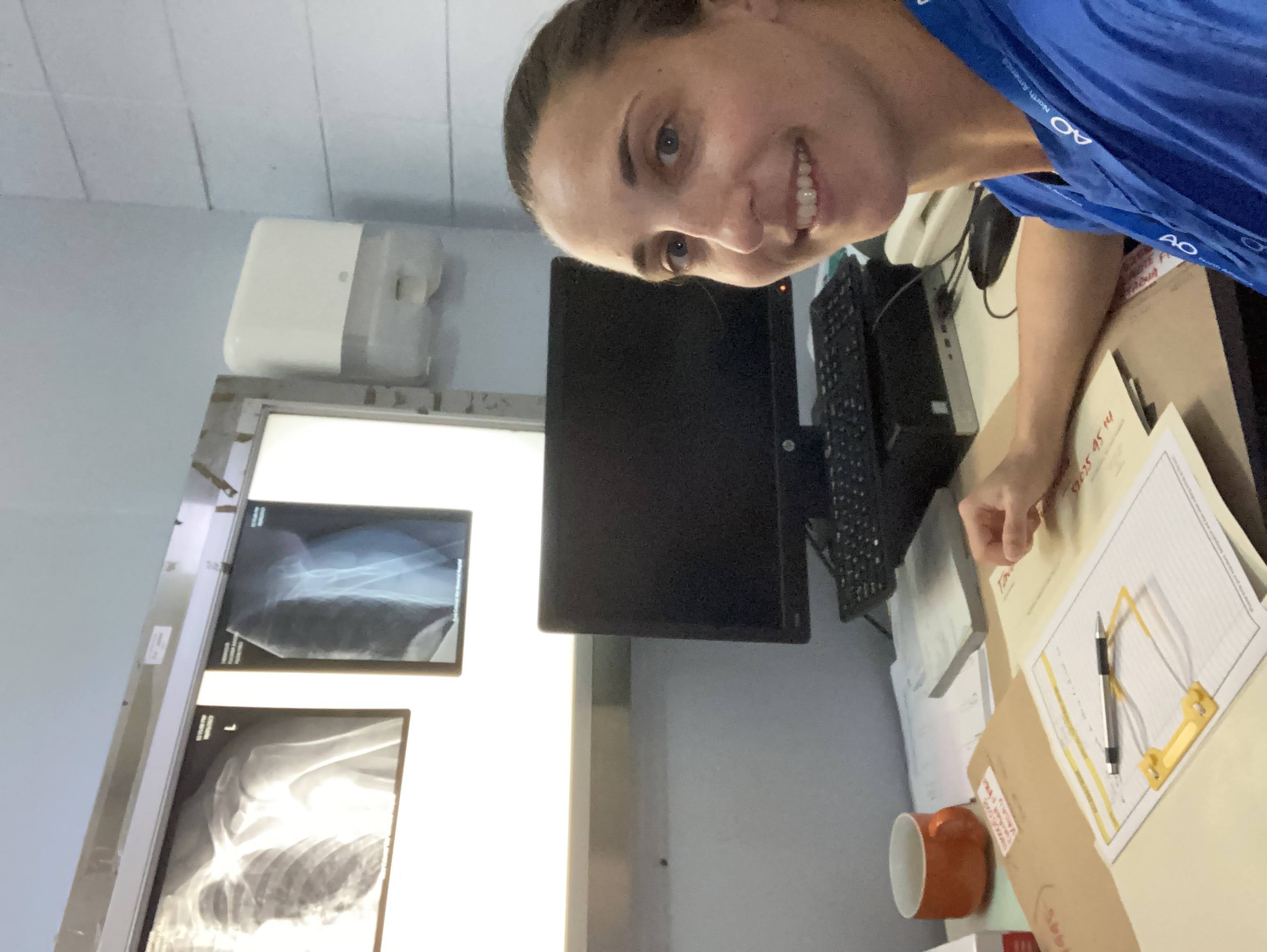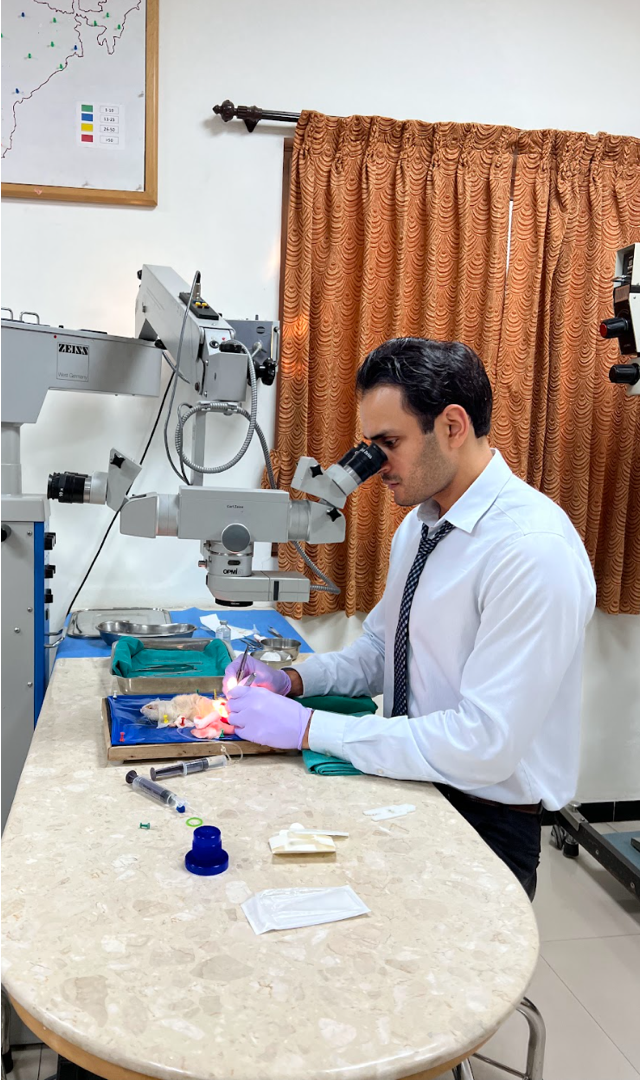June 07, 2023
Each year, Washington University Orthopedic chief residents have the opportunity to do a service rotation abroad. The fifth-year residents experience orthopedic care in other communities, widening the scope of their leadership and practice. A few residents recount their super experience below!
Thomas Hong, MD
Arusha, Tanzania .png)
"The best part of the experience was getting to travel to a part of the world I haven't been to, much less a part of the world with limited resources, and seeing how orthopedic surgery was still so valuable to the community there. From open tibial fractures, initially treated with external fixators, to complex tumors and pelvic fractures, people in the community relied on the orthopedic surgeon to help them get back to normal life and function.
Being so far away from the U.S. and talking to the residents of Tanzania, I was able to reflect back on the state of things back home. Despite being labeled as a "least developed country" by the UN, and despite the legality of guns, there was a sense of unity and a lack of violence. They were surprised at the number of mass shootings that were going on in the United States.
Up until 2020, motor vehicle crashes were the leading cause of child deaths in the U.S., but it has since been taken over by firearms. This is a public health issue that is very important. As a provider that worked in the St. Louis Children's Hospital emergency department, I can recall a devastatingly high number of children who were victims of firearms-related accidents or violence. This stark difference between countries made me realize how bad the state of affairs were back home."
.png)
Kate Buesser, MD
Suva, Republic of Fiji 
"The best part of my experience was participating in ward rounds/OR cases with the registrars (resident equivalents). There is no formal orthopedic training program in Fiji as the Ministry of Health does not recognize the specialty as separate from general surgery. This results in the registrars only receiving 3 months of orthopedic education during their 4-year general surgery training.
"We had great discussions about pathology and management of the various injuries we saw, and the differences in treatments offered in the United States based on higher availability of implants and technology. I can only hope that I convinced one or two of the registrars to return to orthopedics after completion of their general surgery masters so they can continue to provide this crucial care to the Fijian people!
"One of the more surprising things I learned during my time in Fiji was the significant impact traditional healing culture has on the ability to provide early and efficient orthopedic care. Patients with injuries for which I would not even consider for non-operative treatment would defer surgery in favor of bone massage. Patients would often return to clinic weeks to months later with a malunion/nonunion that was much more difficult to treat (if treatment was even an option) than it would have been at the time of injury.
"Additionally, patients with lacerations would present late with severe infections due to attempted care with native plant salves that required a weeks-long hospital admission for IV antibiotics and serial irrigation and debridement until a clean wound could be closed. The orthopedic team works to have an open dialogue with all patients regarding the benefits of early surgery on recovery and function, but it will likely take some time for the western medical perspective to be dominant within the Fijian population."
.png)
Nishant Dwivedi, MD
Coimbatore, India 
"Ganga Hospital serves as one of the busiest complex tertiary care centers in India for skeletal trauma, orthopedics, and plastics and reconstructive surgery patients. I participated in the renowned Ganga Microsurgery Course at the hospital’s Microsurgery Training Institute. Throughout the course of the week, I moved through a series of progressively more challenging microsurgical techniques in a live rat model. Every morning started with an instructional video at 9:00 AM from Dr. Acland’s original seminars, followed by hands-on microsurgical training until 5:00 PM on live rats maintained under peritoneal anesthesia. Dr. Sabapathy encouraged us that if one can consistently perform a 1mm femoral arterial anastomosis, one can technically perform any anastomosis in the human body.
"I was struck by how different Ganga Hospital was at a systems level from any institution in the U.S., and how that translated into efficient and effective patient care. Ganga Hospital has a team of 16 plastic surgery faculty, 20 orthopedic surgery faculty, and 90 anesthesiologists. They command a total of 16 plastic surgery ORs, 16 orthopedic ORs, and 6 emergency ORs which run 24/7. There are no emergency medicine physicians at Ganga – every patient is evaluated by the on-call orthopedic or plastic surgery physician, as well as the on-call anesthesiologist if necessary. The majority of cases at Ganga Hospital, despite their complexity, are performed under regional anesthesia with the patient awake and lightly sedated. The halls of Ganga Hospital carry a strong sense of family and responsibility, with all of the nurses referred to as “sisters” and “brothers,” and each team member taking great pride in their role in every patient’s care.
"I am truly grateful to have had the opportunity to travel to Ganga Hospital during my residency, and my experiences during my international rotation have been transformative. Not only was I able to develop an invaluable foundation of microsurgical technique, but the global perspective I gained and relationships I fostered at Ganga will certainly have a profound impact in my career."
.png)
Andrea Tian, MD
Beijing, China .png)
"I did my international rotation at Jishuitan Hospital in Beijing, China. My favorite part of the trip was seeing how healthcare functions in a completely different country and cultural setting. While treatment algorithms were not terribly different from here in the U.S., the logistics, team structure, and patient expectations were completely different.
"My area of particular interest is congenital hand and upper extremity differences. Jishuitan Hospital specializes in these conditions so I learned from several experts about pathology that I have only seen a few times in the United States."

Learn more about residency and training at Washington University Orthopedics.